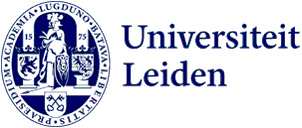Hadassah Drukarch receives prestigious 2023 Brinkhof Internet Thesis Award
We are proud to share that Hadassah Drukarch, a graduate of our Advanced LL.M. in Law and Digital Technologies (class of 2022-2023), has been honored with the prestigious 2023 Brinkhof Internet Thesis Award for her thesis research that explores the intricate interplay between data protection regulation and healthcare innovation.
Titled ‘Innovate comply or die? An analysis of the GDPR’s impact on data-driven innovation in the healthcare industry and considerations for future policy response’, Hadassah Drukarch's thesis project - supervised by Prof.dr. V.A.J. Frissen and under the coordination of Dr. E. Fosch Villaronga - delves deeper into the complex dynamic between regulation and digital advancement. Recognizing the pivotal role of (big) data in our contemporary world, particularly in driving medical advancements and enhancing healthcare services, her research scrutinizes the intricate balance between Data-Driven Innovation (‘DDI’) in healthcare and safeguarding consumer privacy, highlighting the nuanced complexities, potential risks, and opportunities that demand thoughtful consideration and resolution.
In October 2023, Hadassah was invited to share her research findings at the 2023 Brinkhof Symposium on Artificial Intelligence (‘AI’), touching upon some of the core questions asked during that day: How should regulators address the widespread apprehension surrounding AI? What is the fundamental goal behind regulating digital innovation? And, crucially, how can regulators craft these regulations effectively to achieve the delicate equilibrium between fostering innovation and ensuring consumer protection?

Highlights
Hadassah's research delves into the impact of data protection regulation on DDI in the healthcare sector, with a specific focus on the General Data Protection Regulation (‘GDPR’), a paradigm of modern privacy and data protection regulation. Employing a comprehensive approach that combines literature review, legislative analysis, and qualitative research through interviews with key stakeholders, she identified several key dimensions where the GDPR has significantly impacted DDI in healthcare, with a particular emphasis on trust, a factor that piqued her keen interest and attention.
In the realm of healthcare, Hadassah observes that while the GDPR introduces certain limitations for organizations, these constraints are offset by the positive impact of compliance on fostering trust in innovation. Contrary to the conventional belief that privacy regulations stifle innovation, her research challenges this notion. Instead, she argues that establishing a foundation of trust through the GDPR can actually catalyze digital innovation in healthcare, depending on the strategic approach adopted.
Bearing this in mind, she stresses that in order to achieve the facilitative role of the GDPR, a transformative shift in perspective from hurdles to opportunities is required. This shift, she argues, can be realized through open communication and collaboration both within organizations and with patients. While admittedly challenging, she asserts that the GDPR's robust framework, which provides a foundation for trust, can foster a flourishing health data ecosystem if approached with this fundamental concept in mind. In this context, she acknowledges the emergence of trust as a pivotal asset for data-driven businesses and organizations, becoming a compelling incentive for potential investors.
Her research then concludes by offering several considerations for future policy response, particularly in the context of the EU Data Strategy. She asserts that placing trust at the heart of business activities is only truly achievable when regulatory frameworks governing data processing activities align with this fundamental principle. In summary, her findings underscore the importance of comprehensive regulation that takes into account all involved interests, with trust emerging as a central factor.
Hadassah's conclusion emphasizes the necessity for future regulations to strike a delicate equilibrium, considering diverse interests and actively promoting trust. She advocates for an approach that is human-centered, responsible, practical, and adaptable to different contexts and cases. This nuanced strategy, she argues, is vital to fully harness the benefits of DDI in healthcare, ensuring that innovation is not hindered but guided by a foundation of trust.
Read the thesis
You can access Hadassah’s thesis through this link.
